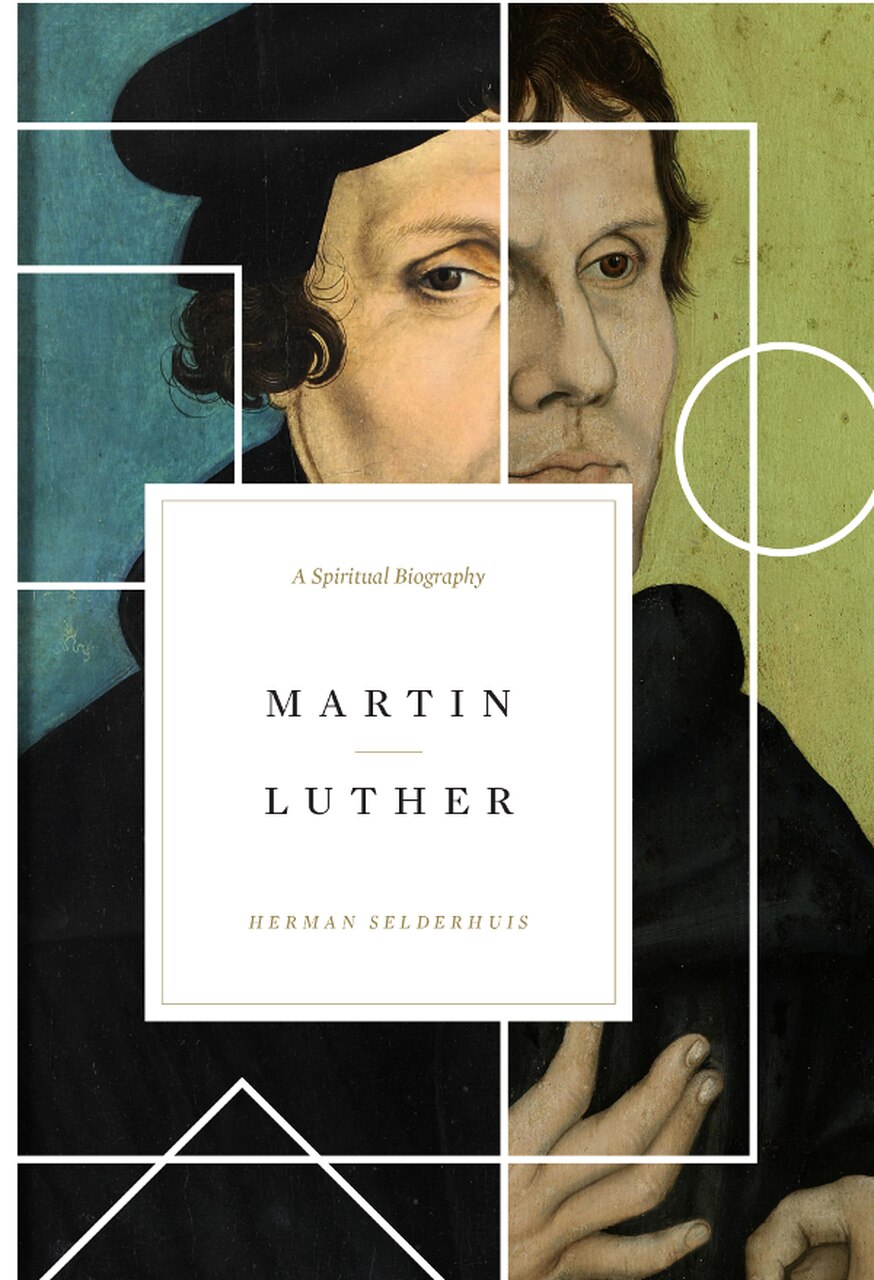Herman Selderhuis: Martin Luther
 Herman Selderhuis, Martin Luther: A Spiritual Biography (Wheaton, Il: Crossway, 2017), 313 pages, ISBN 9781433556944.
Herman Selderhuis, Martin Luther: A Spiritual Biography (Wheaton, Il: Crossway, 2017), 313 pages, ISBN 9781433556944.
There have been many biographies of Martin Luther written since this Pillar of the Faith changed the course of his religious day. Another more recent work has emerged by Herman Selderhuis in 2017, Martin Luther: A Spiritual Biography. As the title implies, this author’s account especially emphasizes the spiritual aspect of Luther’s life rather than giving great concern to historical detail. Because of that, it can be more engaging and appealing to the layperson as well as to the theologian.
Selderhuis, professor of church history at Theological University Apeldoorn in the Netherlands and president of the Reformation Research Consortium, follows many threads in Luther’s life, threads that appear in chapter after chapter of this book. One major thread is the all-consuming attention that Luther gives to evil forces. Beginning in Chapter One, the author elaborates on the belief of Luther’s childhood environment, where, according to popular notion, Devils were everywhere (page 21). Luther carried that persuasion through some of his agonizing experiences: fighting the Devil as a monk in the monastery, dealing with many of those in leadership positions, struggling with the constant ailments that tormented him, throwing the ink bottle at the Devil when in forced hiding (supposedly a bit of folklore), and standing up to face the revolution that was rising up during the reformation. He had no reservations in pointing out Muntzer and Carlstadt as “both representing the Devil in person” (page 202). He also believed the teachings of the Zwickau prophets were of the Devil (page 173), and the German Peasant’s Revolt was also the work of the Devil (page 194).
Another thread discussed by the author was the temperament of the Reformer. Numerous times Luther was frustrated to the point of displaying anger both in speech and action. Selderhuis offered one example; “I hate Erasmus. I hate him with all of my strength,” said Luther (page 208). That statement was not the only expression of his sometimes-violent emotion, as the accounts of Luther’s engagement with some of the secular and religious authorities clearly shows. The author says, to no surprise of the reader, “Luther was a problem. Luther was frequently stubborn and undiplomatic, even with allies” (page 19).
Selderhuis clearly expresses his belief that Luther was of the pacifist mindset, sharing with the reader Luther’s statement, “Christ does not use the sword, but hangs from the cross” (page 203). The Reformer was an advocate of civil disobedience, not violent protests. When Muntzer was beheaded because of his outright encouragement of the Peasant’s Revolt, Luther was heard to say, “Those who live by the sword, die by the sword” (page 204).
As has been pointed out by other biographers, Luther’s reform of the Church was incremental and insufficient for reformers since his time. Although great modification occurred, causing a schism that created the Lutheran Church, those today in Pentecostal/charismatic circles sometimes wonder how much change really did take place. Many more reforms have had to be instigated to bring us to where we are today. Emphasis was always placed on the Word of God and truth for any reforms Luther advocated. Today we rely on the Word of God and the Holy Spirit to guide us into all truth, a concern that seemed not to be evident by the Reformer.
Although the author sometimes differs factually with other biographical accounts, no one definitive narrative of this historic character has surfaced. Selderhuis does offer a chart of Luther’s timeline, illustrations, and a reference map. In his chapters, he discusses the journey to Rome, several of Luther’s associates (friends and foes), the famous hiding place in Wartburg, and of course his marriage with Katharina von Bora (a freed nun), along with other accounts of Luther’s life. For those who enjoy religious history and are primarily concerned with the evolvement of the Christian Protestant Church, this author offers page after page of interesting pertinent material.
Reviewed by Nat Saginario
Preview: https://www.google.com/books/edition/Martin_Luther/iEA5DwAAQBAJ
Further Reading:
Nat Saginario reviews: Eric Metaxas, Martin Luther: The Man Who Rediscovered God and Changed the World (Penguin, 2018)
Category: Church History, Spring 2021


